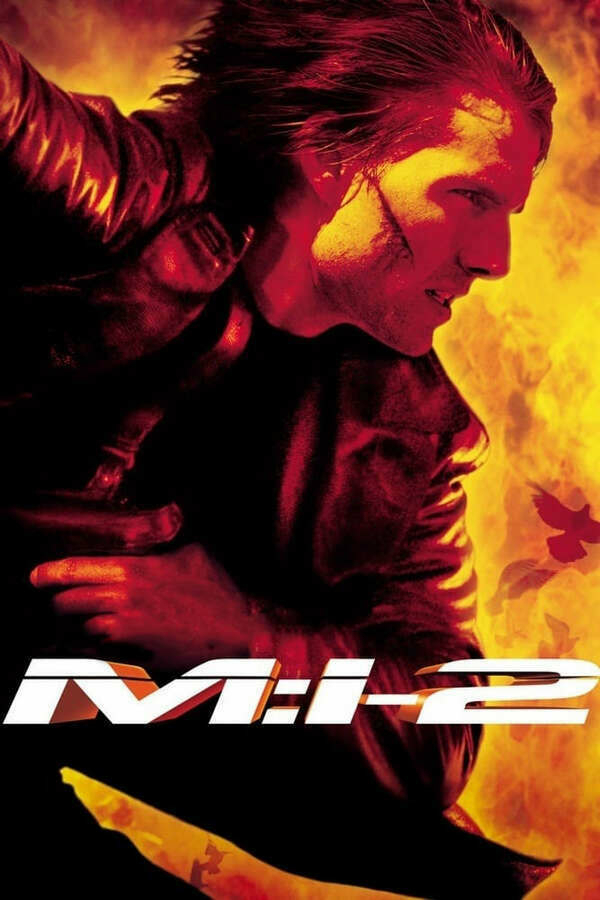Longform
📗 Books 2025, 29: Sir Gawain and the Green Knight, by Simon Armitage

This is, of course, a classic of Old English literature, translated into a modern verse form by the poet Laureate, Simon Armitage.
It’s a deeply weird tale. Why, when an uncanny knight turns up at King Arthur’s court — not just dressed in green, but green-skinned and -haired — and issues a challenge that involves both striking the knight with an axe and agreeing to receive a similar blow from the knight in a year’s time; why would anyone agree to that?
Chivalry, I guess? Or arrogance, we might call it today. Either way, Gawain accepts, and beheads the knight. The knight picks up his head and rides off, saying, ‘See you in a year, you’ve got to find me or you’re a big fat coward,’ basically.
Gawain proceeds to do nothing about it until the year is almost out. This, at least, I can identify with.
Don’t get me wrong, I loved it. I might take issue with the modernness, the casualness of some of Armitage’s word choice. But who am I to do so?
2025 in Blogging and Reading
My personal tradition requires me to post a brief summary of last year’s posts, early in the new year. I also note how many books I read.
In 2025 I read — I’m going to call it 30 books, even though there are only 28 posts so tagged at the time of writing. I’ve finished two in the last week or so that I consider 2025 books, and I’ll be posting about them soon.
And 134 posts so dated, which is up on 2024. Here’s the monthly breakdown:
| Month | Posts |
|---|---|
| Jan | 6 |
| Feb | 13 |
| Mar | 14 |
| Apr | 27 |
| May | 15 |
| Jun | 15 |
| Jul | 8 |
| Aug | 8 |
| Sep | 5 |
| Oct | 11 |
| Nov | 7 |
| Dec | 5 |
And on we go into the new year.
📗 Books 2025, 28: The Book of Dust vol 3: The Rose Field, by Philip Pullman

I said I wouldn’t say much about the previous book till I’d read this one, since they’re really all of a piece, a single story spread across the two. And now here we are. Oh, and there are spoilers below.
Trouble is… it doesn’t feel like we’re quite finished.
To summarise: I mostly enjoyed the story very much. There were points where I was just wanting it to end, but in the sense of wanting to find out what happened, not of wanting it to be over. Lyra and Pantalaimon can separate, since their adventures in the original trilogy (something I had completely forgotten when I first read volume 2, which is part of the reason I reread the originals back then). And they’re not getting on with each other at the start of volume 2. In fact, Pantalaimon leaves Lyra, goes off on his own, to find, he says, her imagination.
Which sets up the main driver for the two books. Or one of the main drivers. Because there’s a lot going on beyond Lyra and Pan’s life. Specifically, the Magisterium is up to its old shenanigans and a whole lot of new ones, and there’s a war brewing. Or being brewed. But it’s not clear to the ordinary people of Brytain (as they spell it over in Lyra’s world) who or what the war is against.
Lyra and Pan travel east by different routes. Along the way they meet gryphons and witches and humans and, of course, daemons. Some of the humans seem to barely believe their daemons exist, which is odd.
And there are still windows between the worlds — presumably opened by some past bearer of the Subtle Knife — and the Magisterium is trying to destroy them with explosives and some success. Because, they believe (or their new pope-like leader claims to know) the windows let evil into the world.
Or something like that. The ravings of religious nutters doesn’t make much sense. This new pope-like guy is, by coincidence, Mrs Coulter’s brother. That is, he’s Lyra’s uncle. We assume, therefore, they’ll meet towards the end.
Reader, they do not meet. And that’s only the least of what feel like a great deal of loose ends. In fact there are so many points of interest that we might have expected to be resolved that are not, that this feels like the middle volume of a trilogy, not the final one. Which makes sense, considering the first volume of this trilogy was a prequel to the originals, while the second two comprise a sequel. It feels like Pullman wanted to, or should have, written a full sequel trilogy.
I mean, I don’t mind a few things not being resolved. Stories never end, really, they just stop. But there’s just so much here feeling like untold stories. Maybe he’ll release a series of standalone shorts, as he has before with things like ‘Lyra’s Oxford’. Maybe he really has another volume up his sleeve, but if it takes another six years to write it… well, he’s not getting any younger.
Where we’re left is not terrible. Lyra and Pan are back together and reconciled, and the immediate active dangers are stopped. But they’re in another world that doesn’t seem great, and if they go back to their own, they’re a wanted terrorist, thanks to their uncle’s work!
I express the previous paragraph in the way I did to make a point that occurred to me about Lyra’s world. All humans have daemons, which are part of themselves. An externalised part of their personality or psyche. The human and daemon talk to each other, and will talk about themselves doing things, saying, ‘When we sneaked into the catacombs…’ and so on. We. The thing Pullman missed, I think (and I’m sure his Exeter College predecessor, JRR Tolkien, would not have missed) is: language would be different. Ordinary, everyday language. There would hardly be a personal singular pronoun. Or it would still exist, but be used in a different way.
There would probably be different forms of the first-person plural, too. A ‘we’ that means one human and their daemon referring to themselves. And another form of ‘we’ that means a group of people (and their daemons) together.
Anyway. Just a thought about language. And I want more, Mr Pullman, but I don’t expect it. Still a great story, just not quite the ending I was hoping for.
Bringing Up Baby, 1938 - ★½
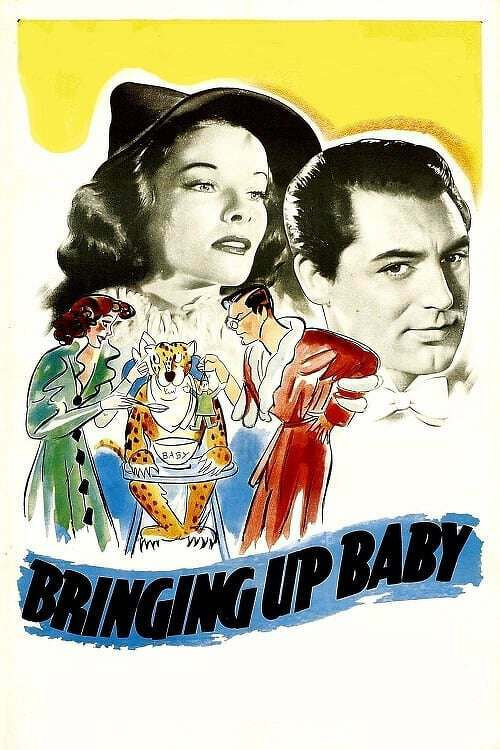
We tried to watch this several months ago and it was so annoying we gave up after a few minutes. But it turns up on so many lists of best comedies, we thought we'd give it another chance.
Which maybe wasn't a mistake, but wasn't a great use of our time.
It's not terrible, but it's pretty poor. Rich people being daft, and all the comedy relies on no one communicating even close to sensibly.
But it has a few moments, and there's a collapsing brontosaurus at the end. Sorry if that's a spoiler for you.
Crucial Track for 30 November 2025: Come Home
'Come Home' by James
Share a song that perfectly soundtracks your commute.
If I hadn't already listed 'Sit Down' as a Crucial Track, it would be perfect, because most days my 'commute' involves going into a room in my house and sitting down at my desk.
Still, we can stay with James: 'Come Home' is just as appropriate.
📗 Books 2025, 27: The Book of Dust vol 2: The Secret Commonwealth, by Philip Pullman
I started to dip into the new one, but as I said I might, I decided it had been too long. I went back and reread this one. And I’m very glad I did. I had forgotten many of the details, remembering only a few high and low points.
I really enjoyed it, and won’t have much to say about it till I’ve finished the new one, which I’m already well into, you won’t be surprised to hear.
There is the suggestion that some gates between the worlds are still open. Are any of them to our (Will’s) world? And would we want Lyra and Will to be reunited, if that were possible? It would undermine the ending of the original trilogy, but if done right…
That said, I don’t think that’s where it’s going to go. Just the idle musings of a shipper.
This Is Spinal Tap, 1984 - ★★½
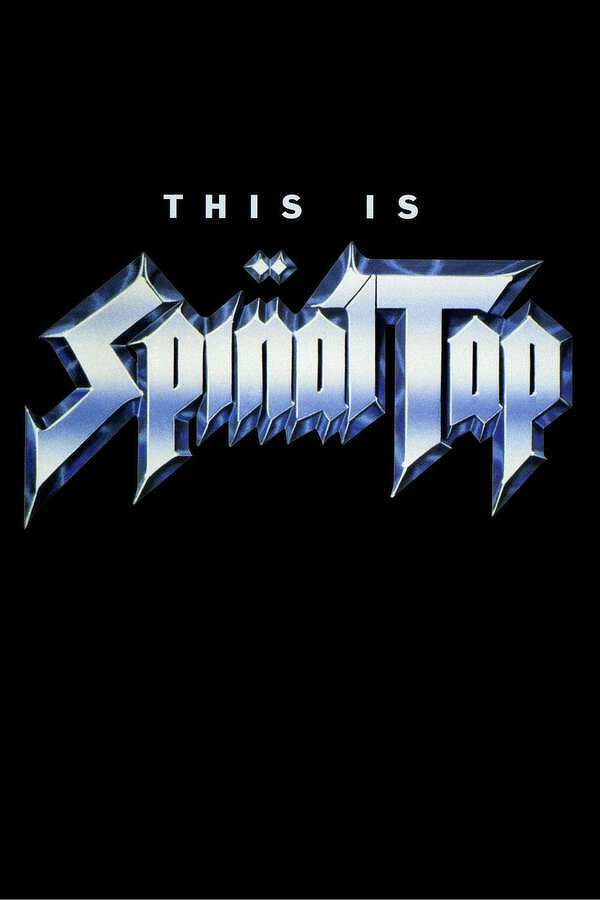
This isn't as good as I remembered, nor, in all honesty, as good as its legend suggests. It's well done, certainly, and the iconic moments are all there, of course. But it's not really that funny.
Some moments, are humorous enough, to be sure.
I wonder if the forthcoming sequel will go up to 12.
📗 Books 2025, 26: Matrix, by Lauren Groff
A book about nuns in the 12th century? Why not? Austin Kleon rates it, which is how I came to it.
About one nun, more accurately, a real historical figure, who may or may not actually have been a nun at all: Marie de France. She was definitely a poet, though.
None of that really matters, though. The book isn’t a biography, it’s fiction. A novel based loosely on a historical figure about whom not much is known. She’s descended from a fairy, or said to be in the story. She has visions of (or from) the Virgin Mary. She saves an abbey full of nuns from starvation, and turns it into a power in the land.
It’s very good. In my ongoing, unstructured notes on how writers present speech, and such: there is no direct speech at all in this. Or there is at times, but it’s not punctuated as such. I would have expected to find that annoying, but actually I hardly noticed it.
Groff is an excellent writer, I would have to say. I’ll be keeping an eye out for more by her.
📗 Books2025, 25: Summerland, by Hannu Rajaniemi
I enjoyed this, but it hasn’t really stuck in my mind. By which I mean, I finished it a few weeks ago, and don’t really recall much of it now. I’ve read two of Hannu’s hard-SF trilogy, but never got to the third, despite what I predicted back then. They were hard work, as I recall, which is probably why I never got to the third.
This one, which was recommended by Warren Ellis is much more approachable. It’s 1938 and the afterlife has not only been discovered, living humans can communicate with the souls in it. And the intelligence services of the the Great Powers are making use of it to extend the reach of their empires.
It’s good, but thinking about it now, one idea that’s mentioned and doesn’t really get explored is this. People no longer fear death. When you know there’s an afterlife — and especially when your one of the privileged ones with a ‘Ticket’, that means your soul will persist in ‘Summerland’ and not dissipate — then there’s nothing really to fear.
But it’s a spy story, so the focus is on the plot, as it should be, and it’s a good one. Thought it maybe slightly runs out of steam at the end. Worth checking out, though.
📗 Books 2025, 24: Under the Glacier, by Halldór Laxness, Translated by Magnus Magnusson

This is a very odd little book. Laxness won the Nobel for Literature back in the fifties, but I had never heard of him before I read Jack Deighton’s review of it earlier this year. This is often the way with Nobel laureates, or so it seems to me. The committee members know of many more writers than you or I.
In her introduction, Susan Sontag includes science fiction in the group of labels of ‘outlier status’ which apply to this novel. Only, I would say, if some characters believing they are ‘in communion with the galaxies’ makes it so. Yet it somehow has something of the feel of SF. Maybe because our unnamed narrator is exploring a landscape in which he is lost and confused.
It’s the psychological landscape of a small community who live by the titular glacier, though. And that glacier — Snæfells — is the same one Jules Verne’s characters start their Journey to the Centre of the Earth. Which gives it a tentative connection to one of our ur-texts. But nothing explicitly fantastical happens. Unless it does. Resurrection? Maybe. Somebody disappearing mysteriously? Possibly.
We, the reader, are as lost and confused by the behaviours of the characters as is the narrator, who has been sent by the bishop of Iceland to find out what has been going on in the distant parish.
It muses on a lot of ideas (SF is ’the literature of ideas’, of course, so there’s that), but has no plot as such. It’s intriguing, though, and well worth a read.
Asteroid City, 2023 - ★★★½
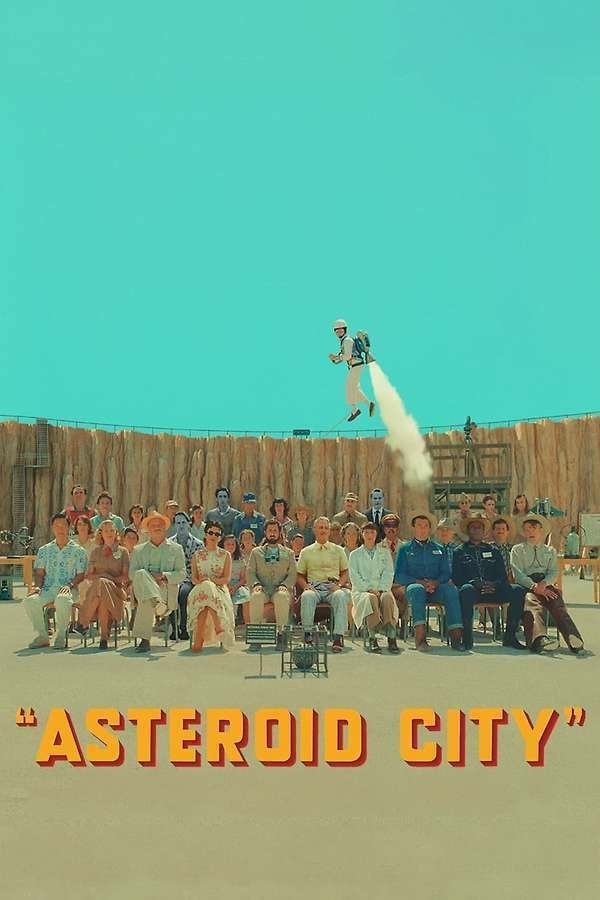
Daft fun from Wes Anderson. The story isn't much here, but every frame is a painting, as that YouTube channel had it. Gorgeous to look at, filled with famous faces, highly mannered acting.
The film isn't SF, but the play within the film is very lightly SF. Nothing is made of the alien's visit, though, because that's not the point.
I enjoyed it a lot.
Mission: Impossible, 1996 - ★½
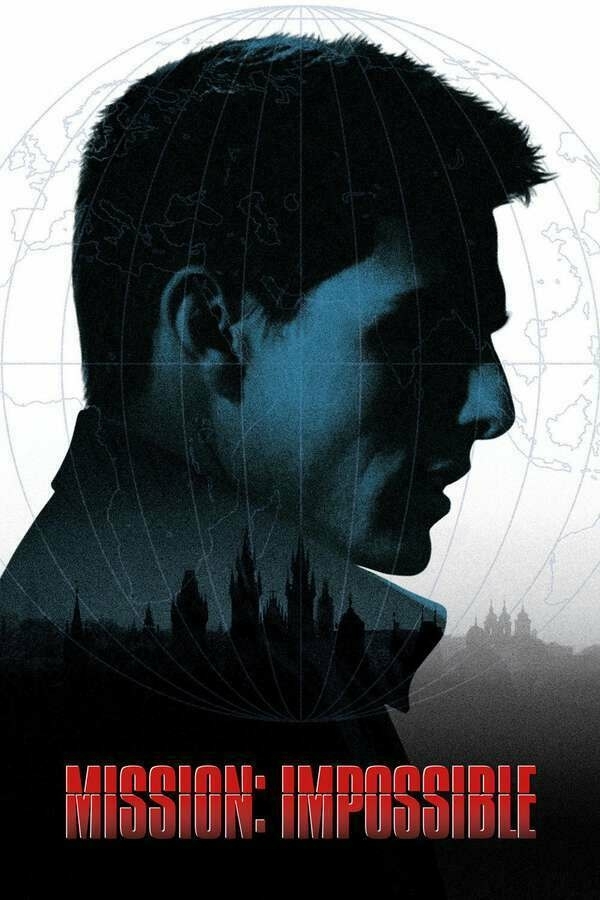
I didn't see this film when it came out, but I used to love the Mission: Impossible TV series back in the seventies.
So this really annoyed me. Why the fuck would you make Jim a traitor? The heroic leader of the IM team for years? The man to whom the self-destructing message was always given. Give him a peaceful retirement, for god's sake. Or just leave him out of it. Don't have him betray everything he ever stood for.
I mean Jesus fuck almighty. It's like if Star Trek: The Next Generation had come along, and they were like, oh yeah, Kirk? He was a Romulan agent all along. Blew up the old Enterprise and everyone on board.
That's the kind of betrayal this film starts with.
Anyway, some shit happens. Things explode. Restaurants, helicopters, trains. Fuck knows.
Crucial Track for 10 October 2025: Clash City Rockers
"Clash City Rockers" by The Clash
Damn, I haven't added a Crucial Track since June? What's been happening?
Today's prompt is:
A song from the 1970s that you like or means something to you.
Well, I mean. If the golden age of music is 14, as the old saying has it, then we're talking about 1978. Let's go straight to the top, then, with The Clash, and 'Clash City Rockers', indeed. Can't go far wrong with that.
What does it mean to me? I first became aware of it by hearing friends who already had it, singing it. Brendan, I think. And the first time I heard it might have been at a gig by the band he was in with Friendy, The Varicose Veins, doing a version of it.
I certainly didn't buy it when it came out (14, remember), but a couple of years later, at one of the Glasgow record shops. Possibly Listen Records on Renfield Street, but it might have been the Virgin Megastore, down the bottom of that street — or rather its continuation, Union Street — on the corner with Argyle Street. I think it probably was, because they had a lot of space and kept a lot of browsable back catalogue.
Great song, great B-side in 'Jail Guitar Doors'. I once saw Primal Scream at the Reading Festival invite Mick Jones on stage and do a version of that.
'Rock rock, Clash City Rockers!'
📗 Books 2025, 23: How to Solve Your Own Murder, by Kristen Perrin

Most sites describe How to Solve Your Own Murder as ‘cosy crime’, which I suppose it is. It has a first-person protagonist, so the reader doesn’t think there’s much chance she’ll die. She does find herself in some danger, though, and hell, she might not inherit her great aunt’s fortune, if she doesn’t solve the mystery of her murder.
The great aunt’s murder, that is. Our heroine has never met the great aunt at the start, and never does, because she’s murdered right away. But we know from a prologue that the great aunt always expected to be murdered. A medium told her so — or at least implied as much — when she was 16. It became the defining fact of her life, which is quite sad.
The great aunt is a secondary first-person narrator, by way of her diaries. So we get alternating chapters of the past and present. It’s a good read.
I did something unusual for me at the end: I read the few pages fom the sequel that are included at the back. Usually I skip that kind of thing. Especially when it’s not from a sequel, but from another book entirely. Not this time, though, and I’ll be seeking out How to Seal Your Own Fate (‘Book two in The Castle Knoll Files’) at some point.
📗 Books 2025, 22: Orbital, by Samantha Harvey

A Booker winner, no less. And a science-fiction novel, too. Well, of sorts. It’s set in space, but very much the non-fictional, real space of the International Space Station, and the present day. And nothing weird or fantastic (in the fantastika sense) happens.
Yet it is set slightly into the future. On the day it takes place — the whole story happens across a single day, sixteen orbits of the space station — a new mission to the moon is launched. A crew of four, scheduled to land on the moon a few days later. Is that enough to make it SF? Kind of. If it were up for SF awards, which I’m sure it must have been, few would quibble.
But none of that matters compared to how gorgeous the prose is. This is a very writerly novel. The language is lovely, almost poetic in places; yet with a lot of lists, oddly, both from the author and from at least one of her characters.
I was, however, mildly annoyed at times, in two aspects of my being. The physics graduate disagreed with some word choices. Right in the opening line, for example, a space station in orbit is described as ‘rotating’ round the Earth. While that’s not exactly wrong, it’s not how we’d usually phrase it. Orbiting or circling, we’d say. It might be rotating too, but that would be around its own axis. A tiny thing, though.
Then the writer and user of English was mildly disturbed by how the small amount of dialogue was presented: no quote marks. That’s not uncommon nowadays, but it can be distracting, and what purpose does it serve?
It’s a delightful work. There isn’t much plot, but there are fragments of all the six crew members’ stories. We see them at work, performing experiments and maintaining the station; watching a typhoon building on Earth and worrying about the people in its path; and musing about and remembering their lives and families back home.
It’s incredibly skillful to conjure so much from so little text — it’s unusually short for a modern novel. A worthy winner, and very highly recommended.
Sliding Doors, 1998 - ★★½ (contains spoilers)
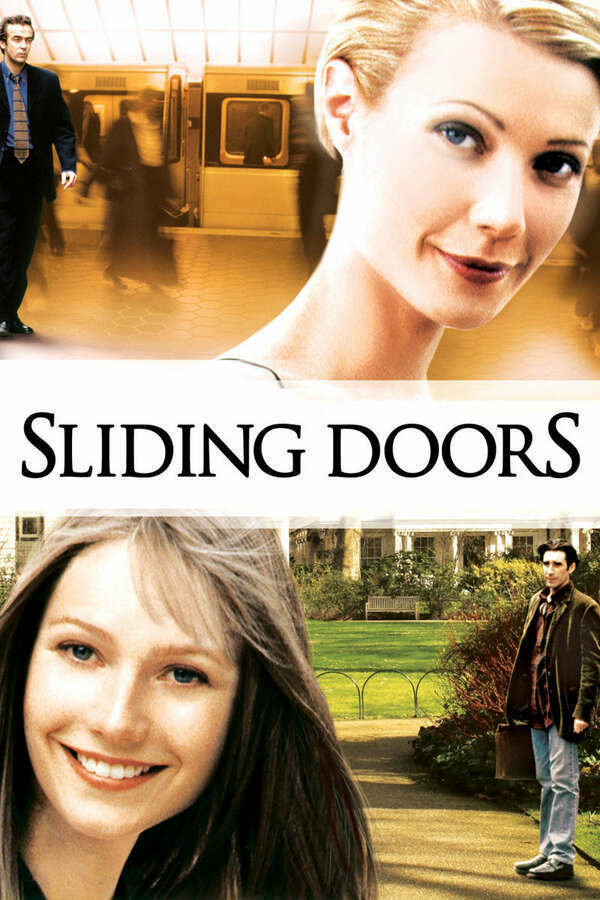
This review may contain spoilers.
Well my goodness, but this is a strange old film. I've known about it and kind of wanted to watch it for years, because I knew it was about alternative realities, paths not taken, that kind of thing.
What I didn't know is it's also a romcom. Or two. Of sorts.
And a tragedy. I mean, spoilers, but…
What were they actually trying to make here? Part of me thinks the idea was, 'Hey, what if we have a romcom but tragic, and the heroine dies at the end?' And the studio, or co-creators were, like, 'No way.'
'Unless…'
And you end up with two romcoms. Sort of.
📗 Books 2025, 21: The Book of Daniel, by EL Doctorow
It’s a strange thing, or so it seems to me, to deal with a political event of your own lifetime, by writing a fictional version of a life. And not of one of the protagonists, but of an imaginary version of one of their children. Yet this is what we have here, and it’s on the whole successful.
Doctorow takes the story of the Rosenbergs, who were accused of conspiracy to commit espionage against the USA, convicted, and executed in 1953. Changing their name to Isaacson, he tells the story of their son, Daniel, along with his younger sister, Susan. In reality the Rosenbergs had two boys, but their ages were similar, and some of what happened to them after their parents’ arrest, according to Wikipedia, is similar to the experiences of Daniel and Susan.
As a novel it’s extremely well written, both readable and literary. It uses a number of devices — I might call them gimmicks, if that didn’t seem too dismissive, but I’m not sure I understand the reason for them. It switches frequently between Daniel’s first person and third — sometimes within the same sentence —, and also jumps around in time. One section is told from the point of view of the father and mother, which makes sense, as it’s when they are in prison and on trial, where Daniel would have no access to them.
The whole thing is presented as the thesis (or part of it) that Daniel is writing for his PhD, so there are several levels of meta involved. The main problem I had with it was the adult Daniel is at times a thoroughly objectionable character. There are a couple of early scenes where he sexually humiliates his young wife that nearly made me throw the book across the room.
Protagonists don’t have to be pleasant characters, of course, but this seemed prurient to me. I suppose we’re meant to understand he’s been damaged, if not abused. by his experiences, and goes on to abuse in turn. But I’m not sure the two sides tie up that well. The scenes of the young kids trying to make their way after their parents are gone, running away from an awful children’s home and returning to their now-empty house, are very moving.
Susan is in a mental institution at the start, and apparently dies there. Her story is the one that’s missing from this, in fact. We learn about her as a kid, certainly, and there are some interactions with Daniel when they’re older, then they’re estranged for a while. Then he visits her at the institution and she dies offstage. It feels like a gap, but again, maybe that’s how life feels sometimes.
As I say, it’s an unusual choice. Doctorow could have written a story about children torn from their parents and all that implies, without making it so closely tied to real events. Or he could have written a biography of the Rosenbergs. The latter would be a different kind of thing, though, and probably have a different readership. You’d only read such a biography if you were specifically interested in the case or the people, while you can read this as a novel without even knowing it’s inspired by real events. And maybe that’s the reason for using the events as the seed.
📗 Books 2025, 20: The Hallmarked Man, by Robert Galbraith
The mighty JK Rowling’s latest reaches us, at long last. After the bombshell ending of The Running Grave two years ago, we have the next installment in Strike and Robin’s story. (That should really be ‘Strike and Ellacott’s’, or ‘Cormoran and Robin’s’, but sometimes you’ve got to write things in the way that feels right).
The case is way complex. I’m not sure I followed all the twists, or even quite had all the characters figured out — especially actual and possible victims, even more than culprits. That’s partly because of the speed I read it at, and the late nights my reading caused.
Anyway, I’ll not say too much more because of spoilers, but I think The Ink-Black Heart is still my favourite.
The Italian Job, 1969 - ★★★½
I would have said I had rewatched this inside the last five years or so (after seeing it as a kid). But I remembered next to nothing of it, apart from the overall idea and the iconic scenes.
It's still pretty good. Oddly, it kind of makes me want to see what they did with the remake, but let's face it, the answer is probably, 'made a mess.'
